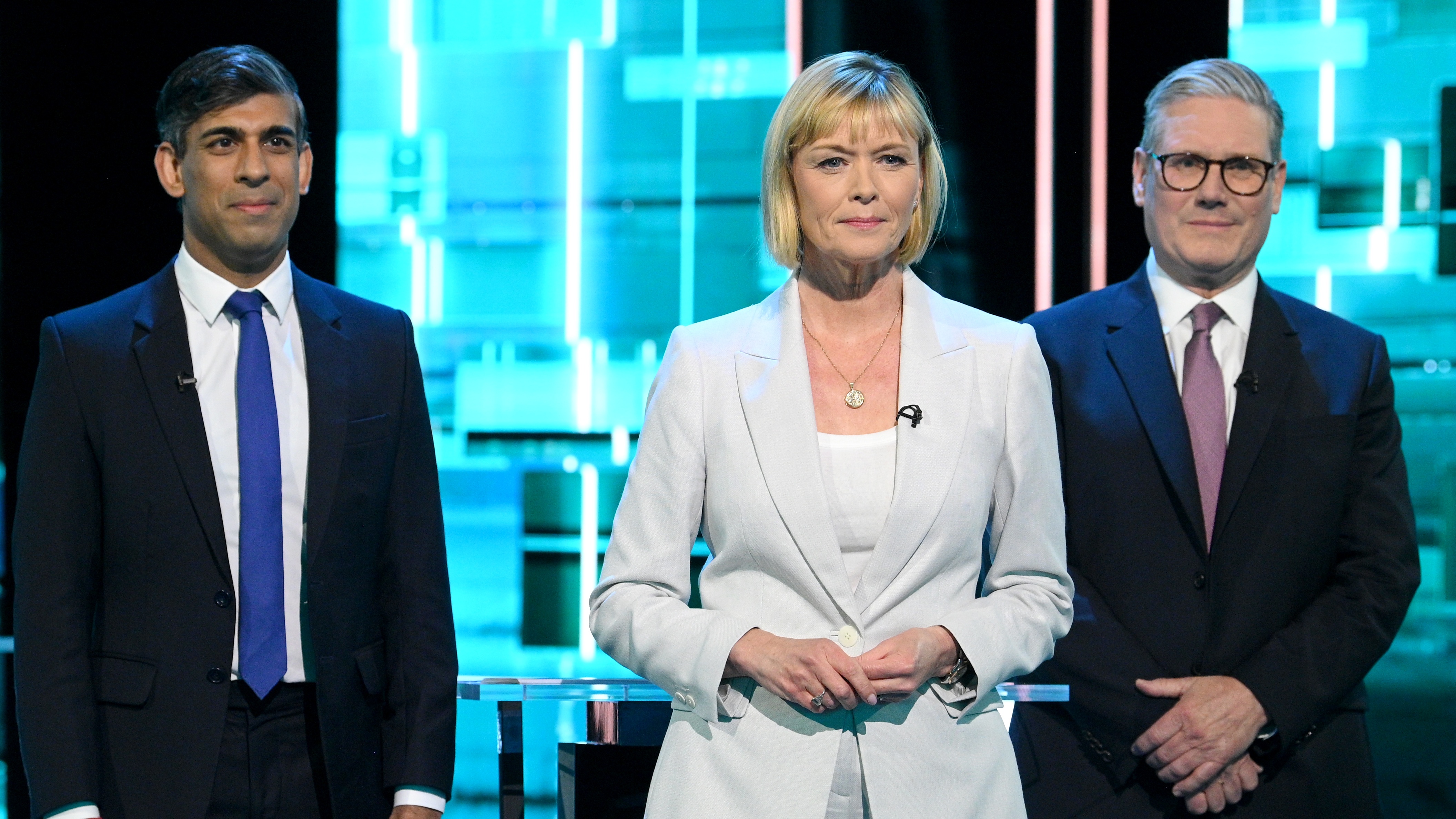Will Labour really hike taxes by £2,000?
Rishi Sunak controversially claimed Labour has £38.5bn worth of unfunded spending plans

A free daily email with the biggest news stories of the day – and the best features from TheWeek.com
You are now subscribed
Your newsletter sign-up was successful
Keir Starmer said it was "garbage" to claim the Labour Party would raise taxes by £2,000 in a heated televised debate with Rishi Sunak last night.
The pair went head to head in a "combative and occasionally bad-tempered" discussion, the first live set piece of the general election campaign, said the Financial Times.
A YouGov poll released after the debate in Manchester suggested the public thought the debate was largely a tie between the two, with 51% believing the prime minister had bested the Labour leader, while 49% thought Starmer had won the day.
The Week
Escape your echo chamber. Get the facts behind the news, plus analysis from multiple perspectives.

Sign up for The Week's Free Newsletters
From our morning news briefing to a weekly Good News Newsletter, get the best of The Week delivered directly to your inbox.
From our morning news briefing to a weekly Good News Newsletter, get the best of The Week delivered directly to your inbox.
With the debate centring largely around immigration and tax, the PM was "keen to make one claim in particular: that Labour would put up taxes by £2,000", said the BBC. "Mark my words," Sunak declared last night, "Labour will raise your taxes."
What did the commentators say?
The Tories have claimed that Labour is planning £38.5 billion in "unfunded spending", which they say is "equivalent" of £2,094 per working household over the next four years.
In the fast-moving debate, Starmer initially struggled to respond and then eventually dismissed the figure as a "false read-out" from "pretend Labour policies", and later as "absolute garbage".
The £2,000 tax hike claim is based on an estimate produced by the Conservative Party in a dossier unveiled last month. It claims there is a £38.5 billion gap between the cost of Labour's policies over the next four years and its plans to raise revenue. The figure was reached by dividing the cost of Labour's spending commitments by the number of UK households with at least one person working.
A free daily email with the biggest news stories of the day – and the best features from TheWeek.com
During the debate, Sunak suggested that the figures had been worked out by independent civil servants. But while some estimates have been carried out by civil servants, it was done "using assumptions provided by Conservative Party special advisers" – who are political appointees – said the Press Association.
A letter seen by the BBC's chief political correspondent, Henry Zeffman, appeared to further undermine Sunak's claims that the figures had been reached independently by civil servants. In a letter to the Labour Party two days ago, the Treasury permanent secretary James Bowler said the calculation of £38 billion of uncosted spending used by the Tories "includes costs beyond those provided by the civil service".
Bowler added that he had reminded ministers and advisers that "any costings derived from other sources or produced by other organisations should not be presented as having been produced by the civil service".
What next?
Responding to Bowler's letter on "BBC Breakfast" this morning, Shadow Paymaster General Jonathan Ashworth said the letter was "slam-dunk proof of Rishi Sunak's big desperate lie".
But a Conservative Party spokesman told the BBC that they had been "fair" to Labour in the way it had produced the figures, and "used only clear Labour policies, their own costings or official HMT costings using the lowest assumptions".
Writing on X, former civil service chief Gus O'Donnell said: "Getting civil servants to cost opposition policies in run-up to election needs to stop."
In the past, both parties have attempted to do it, but it is "an unsavoury practice as assumptions provided by special advisers are biased to make party political scoring points".
Sorcha Bradley is a writer at The Week and a regular on “The Week Unwrapped” podcast. She worked at The Week magazine for a year and a half before taking up her current role with the digital team, where she mostly covers UK current affairs and politics. Before joining The Week, Sorcha worked at slow-news start-up Tortoise Media. She has also written for Sky News, The Sunday Times, the London Evening Standard and Grazia magazine, among other publications. She has a master’s in newspaper journalism from City, University of London, where she specialised in political journalism.